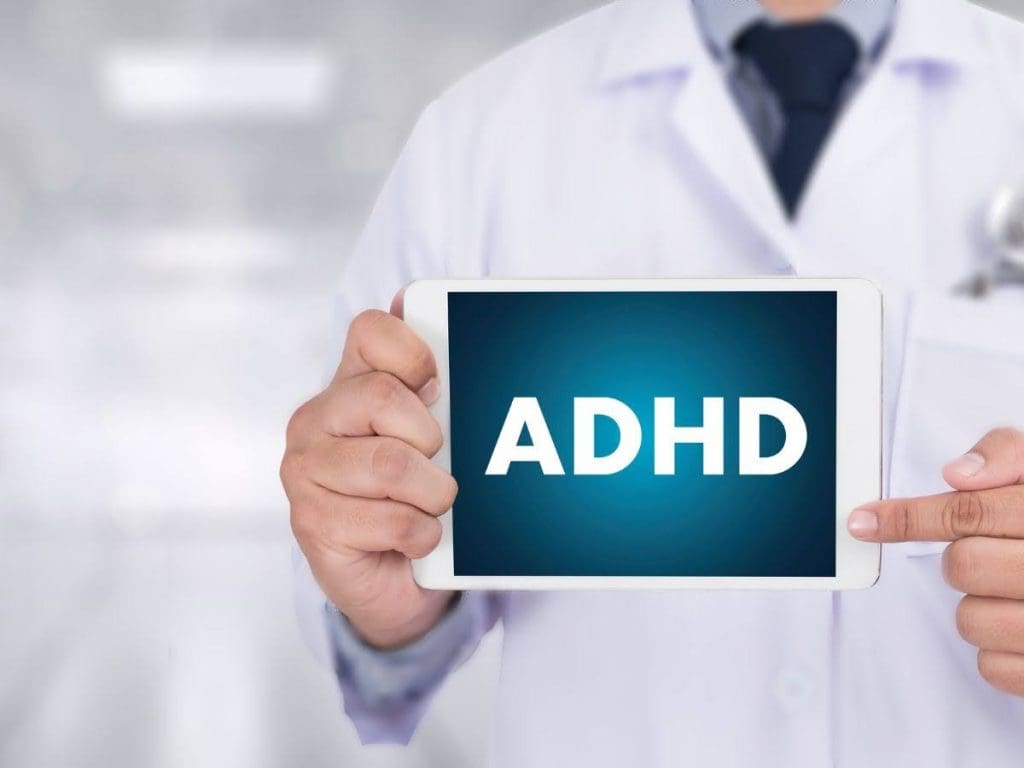Key Takeaways:
- CBD’s Interaction with ADHD: CBD may positively affect focus, anxiety, and sleep in individuals with ADHD by interacting with the body’s endocannabinoid system, although more research is needed to fully understand its efficacy and safety.
- Legal and Quality Considerations: The legal status of CBD varies, and quality can differ significantly between products. Consumers should prioritize transparency, seeking third-party tested products from reputable sources.
- Complementary Approach: CBD should be considered a complementary tool within a broader ADHD management strategy, not a standalone solution. Consulting healthcare providers and careful monitoring are essential for integrating CBD safely and effectively.
The increasing interest in alternative therapies for ADHD management has brought CBD into the spotlight as a potential aid. This article explores CBD’s role in enhancing focus and calm for individuals with ADHD, examining scientific evidence, benefits, and important considerations. We aim to offer a clear, informed perspective to help readers make educated decisions about incorporating CBD into ADHD management plans.
Understanding ADHD
Attention Deficit Hyperactivity Disorder (ADHD) affects individuals’ focus, impulsivity, and activity levels. It’s a common condition that begins in childhood and may persist into adulthood. Symptoms vary widely and can disrupt daily life, making challenging tasks like studying, working, and maintaining relationships. ADHD is typically managed through medications, behavioral therapy, and lifestyle adjustments. The condition’s complexity often necessitates a multifaceted approach to finding the most effective strategies for each individual.

Unlock Your Focus & Calm with Happy HempDiscover how CBD can complement your ADHD management plan:
Ready to embrace a balanced approach to ADHD management? Explore Happy Hemp’s CBD Selection Today! |
The Rise of CBD for ADHD
What is CBD?
Cannabidiol, or CBD, is a compound from the cannabis plant that has gained attention for its potential health benefits without the intoxicating effects of THC. Its therapeutic properties are being explored for various conditions, including ADHD. CBD’s appeal lies in its ability to interact with the body’s endocannabinoid system, potentially affecting mood, cognition, and stress responses. This interaction is why many consider CBD a promising option for managing ADHD symptoms, as it may help regulate key functions that are often problematic in those with the condition.
Research Overview on CBD and ADHD
Research into CBD’s effects on ADHD is in the preliminary stages, with existing studies providing mixed results. Some evidence suggests CBD may help alleviate symptoms like hyperactivity and inattention, while other studies show minimal impact. The anecdotal accounts of individuals using CBD to manage ADHD contribute to the growing interest, despite the lack of conclusive scientific evidence. This situation underscores the need for further, more comprehensive research to understand CBD’s efficacy and safety for ADHD fully.
Potential Benefits of CBD for ADHD
Enhancing Focus and Attention
CBD’s potential to enhance focus and attention in individuals with ADHD is an area of interest. By possibly modulating neurotransmitter activity, CBD may help stabilize mood and improve cognitive functions related to focus. This could be particularly beneficial for those with ADHD, who often struggle with maintaining attention on tasks and managing distractions. However, it’s important to note that CBD is not a cure for ADHD and should be considered a complementary approach.
Reducing Anxiety and Stress
Anxiety and stress are common comorbidities in individuals with ADHD, often exacerbating symptoms. CBD has been studied for its anxiolytic properties, suggesting it could help reduce anxiety levels. This calming effect might indirectly benefit ADHD symptoms by creating a more relaxed state, making it easier to manage impulsivity and hyperactivity. While promising, these benefits should be viewed in the context of a broader ADHD management plan.

Improving Sleep Patterns
Sleep issues frequently accompany ADHD, affecting overall well-being and symptom severity. CBD’s potential to improve sleep quality stems from its possible effects on anxiety and stress, common culprits behind sleep disturbances. Better sleep can lead to improvements in daytime focus and mood, critical areas of concern for those with ADHD. As with other potential benefits, the role of CBD in improving sleep for ADHD individuals requires further research.
Legal and Regulatory Considerations
CBD Legality
The legal landscape for CBD is complex and varies by jurisdiction. In the United States, hemp-derived CBD with less than 0.3% THC is federally legal, but state laws can differ significantly. Consumers interested in CBD for ADHD should familiarize themselves with their local regulations to ensure compliance. This legal variability emphasizes the importance of staying informed about current laws and changes.
Quality and Regulation of CBD Products
The CBD market’s rapid growth has led to a wide range in product quality and consistency. Due to varying regulations, consumers must be diligent in verifying product quality, including purity, concentration, and the absence of contaminants. Reputable brands often provide third-party lab testing results, offering transparency and assurance to consumers. Prioritizing quality and safety is crucial when selecting CBD products for ADHD management.
Navigating the CBD Market
Choosing the right CBD product requires understanding the different types available and their respective administration methods. Factors like the desired onset time of effects, convenience, and personal preference play significant roles in product selection. Additionally, considering the concentration of CBD and the presence of other cannabinoids or terpenes can impact the overall effectiveness. Consumers should approach the CBD market with a focus on research and quality to find the most suitable products for their needs.
How to Choose the Right CBD Product?
Types of CBD Products
The CBD market features a variety of product types, including oils, capsules, edibles, and topicals. Each offers different benefits and methods of administration. For example, oils and tinctures provide a quicker onset of effects when taken sublingually, while edibles offer a longer duration of action. Understanding these differences is essential for selecting a product that aligns with individual needs and lifestyle.
Factors to Consider
When choosing a CBD product, key considerations include the source of the hemp, extraction methods, and the product’s THC content. Products derived from organically grown hemp and extracted using safe methods tend to offer higher purity and quality. Additionally, full-spectrum, broad-spectrum, and isolate products offer different profiles of cannabinoids and terpenes, which can influence the product’s effects. Consumers should carefully evaluate these factors to select the most appropriate CBD product for ADHD management.
Starting Your CBD Journey
For those new to CBD, beginning with a low dose and gradually increasing it is recommended to assess tolerance and effectiveness. Monitoring the body’s response and any changes in ADHD symptoms can help determine the optimal dosage. It’s also advisable to consult with a healthcare professional, especially when using CBD in conjunction with other ADHD treatments, to ensure safety and efficacy.
Integrating CBD into Your ADHD Management Plan
Consulting Healthcare Providers
Incorporating CBD into an ADHD management plan should involve consultation with a healthcare provider. This ensures that CBD use is appropriate and considers potential interactions with existing medications and treatments. Healthcare providers can also offer guidance on dosage and product selection, tailoring the approach to individual health needs.
Monitoring Effects and Adjusting
After starting CBD, it’s important to closely monitor its effects on ADHD symptoms. This may involve adjusting dosages or trying different products to achieve the desired outcomes. Personal experiences and responses to CBD can vary, making it necessary to adopt a flexible and patient approach to finding the most effective regimen.
A Balanced Approach to ADHD Management
CBD should be viewed as part of a comprehensive ADHD management strategy rather than a standalone solution. Combining CBD with other treatments and lifestyle changes can provide a more holistic approach to managing the condition. Emphasizing overall well-being, including diet, exercise, and mental health, can enhance the effectiveness of CBD and other ADHD management techniques.
Final Thoughts On CBD for ADHD
CBD offers a promising yet still exploratory option for individuals with ADHD seeking alternative or complementary management strategies. While early evidence and anecdotal reports suggest potential benefits, a cautious and informed approach is essential. As research progresses, the role of CBD in ADHD management will become clearer, potentially offering new avenues for improving focus, reducing anxiety, and enhancing quality of life for those affected by the condition.
Read Also:
- Optimize Your Wellness: 5 Ways to Incorporate CBD from Happy Hemp into Your Daily Routine
- Benefits Of CBD Oil For Senior Citizens
- Which type of CBD is best for arthritis pain?
Frequently Asked Questions About CBD for ADHD
Is CBD a legal treatment for ADHD?
CBD derived from hemp with less than 0.3% THC is federally legal in the United States, but its legal status can vary by state. It’s not officially recognized as a treatment for ADHD, so it’s important to check local laws and consult with a healthcare provider before using CBD for ADHD management.
Can CBD replace ADHD medications?
CBD should not be viewed as a replacement for traditional ADHD medications. It may serve as a complementary approach to help manage certain symptoms, but any changes to medication should only be made under the guidance of a healthcare professional.
How does CBD affect the brain in individuals with ADHD?
CBD interacts with the body’s endocannabinoid system, which plays a role in regulating mood, sleep, and focus. These interactions may help stabilize mood and improve cognitive functions related to focus in some individuals with ADHD, but more research is needed to fully understand these effects.
Are there any side effects of using CBD for ADHD?
Common side effects of CBD can include fatigue, changes in appetite, and gastrointestinal issues. These side effects are generally considered mild, but CBD can also interact with other medications, so it’s important to consult with a healthcare provider.
What is the best form of CBD for managing ADHD symptoms?
The best form of CBD depends on individual preferences and needs. Oils and tinctures may offer quicker relief, while edibles provide longer-lasting effects. Topicals are less commonly used for ADHD but can be beneficial for associated conditions like anxiety.
How quickly can someone expect to see improvements in ADHD symptoms with CBD?
The onset of effects can vary based on the form of CBD used and individual factors. Some may notice improvements within hours, while for others, it may take several weeks to observe changes. Consistent use and monitoring are key to determining effectiveness.
Is CBD safe for children with ADHD?
The safety of CBD for children with ADHD is not well-established, and its use should be approached with caution. Consultation with a pediatric healthcare provider familiar with CBD is essential before considering it for a child’s ADHD management plan.
Can CBD help with the anxiety and sleep issues associated with ADHD?
CBD has been studied for its potential to reduce anxiety and improve sleep quality, which can be beneficial for individuals with ADHD who experience these comorbid conditions. However, its efficacy can vary, and it should be part of a broader management strategy.
How should someone start using CBD for ADHD management?
Starting with a low dose and gradually increasing it while monitoring symptoms is advisable. Keeping a journal to track dosages, effects, and any side effects can help determine the most effective regimen. Consulting with a healthcare provider is also recommended.
Can CBD improve concentration in individuals without ADHD?
While some people report improved concentration and focus with CBD use, evidence supporting its efficacy in individuals without ADHD is limited. CBD’s effects can vary widely among different people, regardless of ADHD diagnosis.
Sources:
- Paule, M. G., Rowland, A. S., Ferguson, S. A., Chelonis, J. J., Tannock, R., Swanson, J. M., & Castellanos, F. Xavier. (2000). Attention deficit/hyperactivity disorder: characteristics, interventions and models. Neurotoxicology and Teratology, 22(5), 631–651. https://doi.org/10.1016/s0892-0362(00)00095-7
- Datta, S., Ramamurthy, P. C., Anand, U., Singh, S., Singh, A., Dhanjal, D. S., Dhaka, V., Kumar, S., Kapoor, D., Nandy, S., Kumar, M., Koshy, E. P., Dey, A., Proćków, J., & Singh, J. (2021). Wonder or evil?: Multifaceted health hazards and health benefits of Cannabis sativa and its phytochemicals. Saudi Journal of Biological Sciences, 28(12). https://doi.org/10.1016/j.sjbs.2021.08.036
- Khan, R., Naveed, S., Mian, N., Fida, A., Raafey, M. A., & Aedma, K. K. (2020). The therapeutic role of Cannabidiol in mental health: a systematic review. Journal of Cannabis Research, 2(1). https://doi.org/10.1186/s42238-019-0012-y







